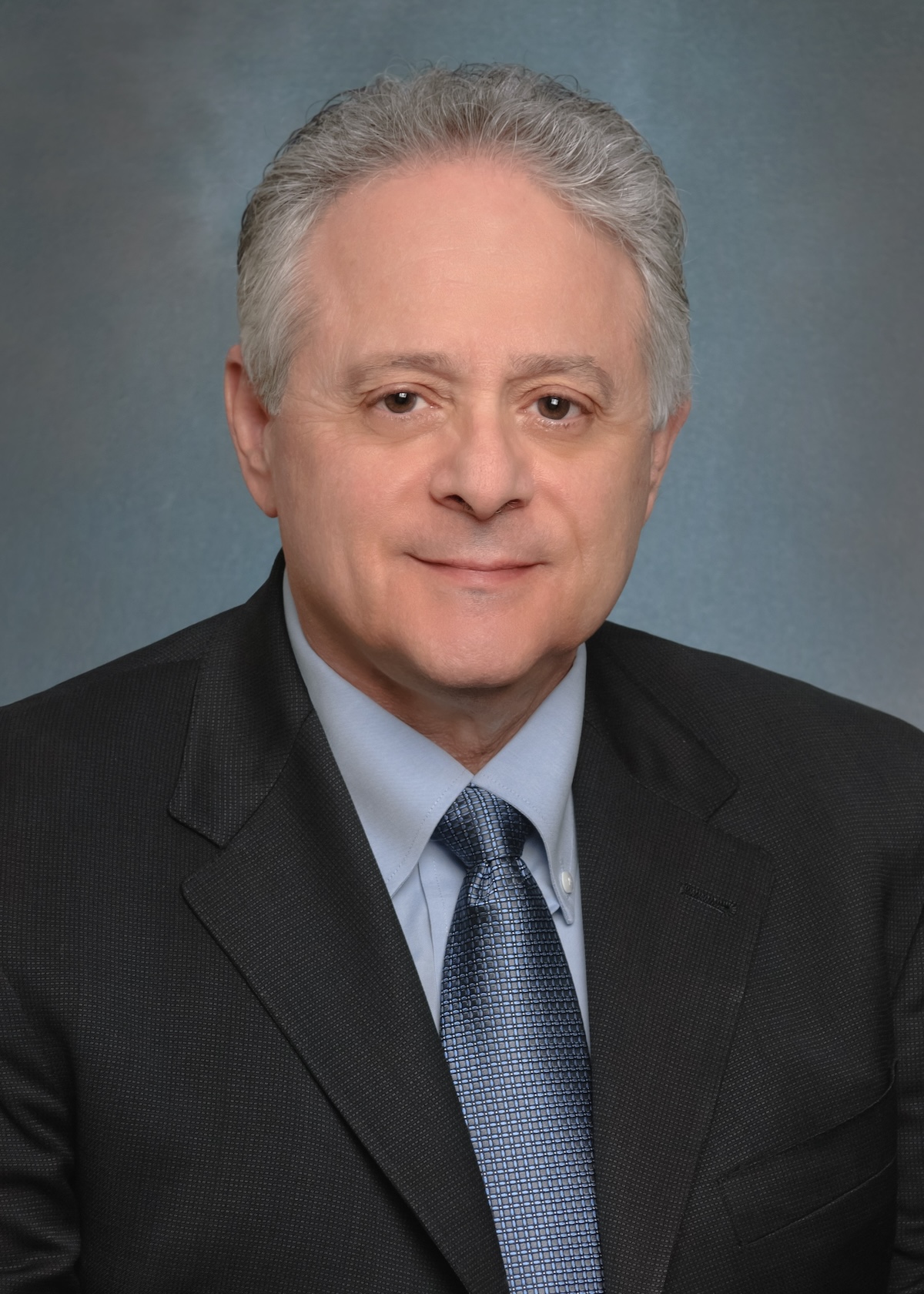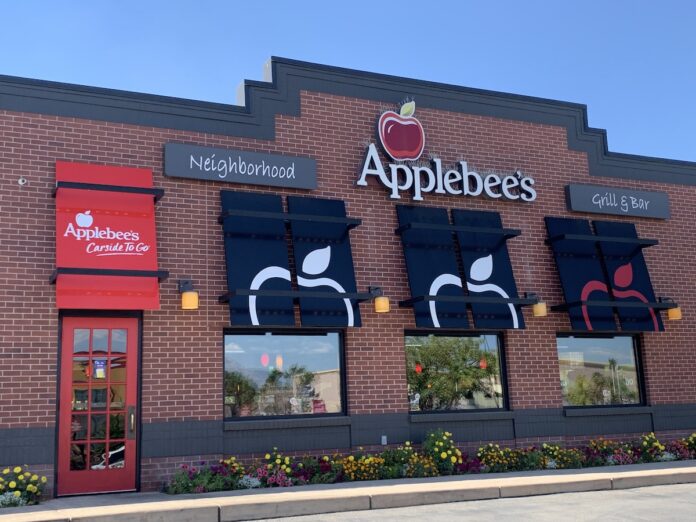The state of the franchising industry going forward is in flux.
That is the belief of Barry Kurtz, an attorney with Lewitt Hackman in Encino. As the chair of the firm’s franchise practice group, he would know, because he represents franchisers and franchisees in national and regional restaurant, retail and service businesses.
Franchising is an approach to entrepreneurship for a large number of Americans, with many women and people of color opting into the practice. According to International Franchise Association research, the minority franchise ownership rate is 26%, compared to 17% of independent businesses generally.
According to the Business Journal’s annual list of largest franchisers in the greater San Fernando Valley area, Dine Brands Inc., the Pasadena-based owner of the IHOP and Applebee’s brands, is the No. 1 franchise with 3,500 locations, all owned by franchisees. The next two on the list are nonfood brands – Sherman Oaks-based My Gym Enterprises at No. 2. and retailer Carmen Steffens in Westlake Village at No. 3. Rounding out the top 10 are six other food concepts, including three pizza restaurants; the remaining franchise is a nonfood business – 911 Restoration Franchise Inc. in Van Nuys, which sits at No. 5.

Minimum-wage hike coming
When asked what the future holds for franchising in California, Kurtz answered, “It is up in the air.”
And a minimum-wage hike coming in the spring makes that future even more uncertain.
“We are going to have to wait and see what the increased wages on minimum wage does,” Kurtz said.
The increase to $20 an hour for employees of fast food restaurants is going to have a big impact on the franchises affected by it. The wage increase affects fast food chains with 60 or more locations nationwide. That’s $4 more than the current minimum wage in the state – an increase of 25% in one of the largest expense categories for restaurants.
There is one winner and two losers coming from the rise in the minimum wage, Kurtz said.
“The employees are coming out good because their minimum wage is going up from $16 an hour to $20 an hour,” Kurtz said.
On the other hand, he added, he saw recently that two Pizza Hut franchisees in Southern California were going to lay off 1,100 delivery drivers, possibly due to the wage increase.
“So it’s not good for that 1,100 who are losing their jobs,” Kurtz said.
In Worker Adjustment and Retraining Notifications filed with the state Employment Development Department, the two Pizza Hut franchisees – Southern California Pizza Company LLC in Orange and affiliates of PacPizza in San Ramon – said they had “made a business decision to eliminate first-party delivery services and as a result the elimination of all delivery driver positions.”
The affected restaurants include those in Los Angeles, Riverside, San Bernardino and Kern counties. The layoffs range in number from one in Coachella up to 12 in Hollywood and Sylmar and 13 in Victorville.
And lastly, the consumer is going to pay the increased costs that are going to be put on the franchisees at their restaurants, Kurtz said.
Peter Lagarias, an attorney with Lagarias, Napell & Dillon LLP in San Rafael, represents franchisees in his practice. He said the ones he spoke to were not in favor of the wage increase.
“I can tell you that franchisees did not support AB 1228 because labor is one of their big-ticket expenses,” Lagarias said. “They already have higher costs in food, higher cost of rent, and this will increase their labor costs. And if they raise the price of their product to consumers they have to pay more in royalties to their franchisers. Most franchisers require a franchisee to pay a percentage of, say, 5% to 6% of their total revenue as a royalty.”
Related bill
The increase in the minimum wage for fast food workers was the result of a compromise reached between Gov. Gavin Newsom’s office, industry trade groups and several large franchisers. The compromise bill, AB 1228, was signed into law by Newsom on Sept. 28.
In addition to the wage increase, the bill also created a Fast Food Council. The council is established within the Department of Industrial Relations with equal representation of employers and employees, as well as a neutral chairperson. The council’s main job is to set wages in the future.
The law states that the council can only make recommendations to the Department of Industrial Relations and other state agencies. After April’s minimum-wage increase, the council can only raise worker wages by 3.5% a year or the consumer price index, whichever is lower.
The compromise bill reached between Newsom’s office and the fast-food franchisers very much favors the employees, Kurtz said, adding, “You have a council that is tipped in favor the employees.
“There is nothing wrong with that, but the franchisers are going to be the subject of any negative actions the council takes. Whether that is wages or injuries in the workplace, anything that can come up, they will have to get along in a different way,” he said. “A franchiser will sit back and say, ‘Why are we doing this franchising? If we are responsible for the employees, we’ll just operate (the locations) ourselves.’”
But if the council is tipped in favor of the franchisees, then the franchisers have an advantage of their own when it comes to other aspects of the industry.
Lagarias, the attorney who represents franchisees, said that the franchise agreements invariably favor the franchiser.
“Franchise agreements are adhesion contracts written by and for franchisers,” Lagarias said.
Opportunities to own
For Kurtz, who has heard time and again about immigrants coming to the United States who end up owning 100 chicken restaurants or some such, franchising represents an opportunity.
“It gives people the opportunity to get into the business that’s being franchised,” he said. “They get trained, they get continuing support and, depending on the size of the franchiser, they get advertising they couldn’t otherwise afford.”
But there are disadvantages as well.
“If you are an independent person you probably don’t want anyone telling you how to cook your hamburgers,” Kurtz continued.
When franchising works, it works really well, he said, adding that if the franchiser or franchisee doesn’t do what they are supposed to do, that is when issues arise.
“You are going to have lawsuits, you are going to have adversarial feelings between franchisers and the franchisees,” Kurtz said. “The franchiser only makes money if the franchisees make money, so everybody’s got to perform.”
Lagarias, who has known Kurtz for 25 years, called franchising an enormous part of the retail economy.
“This includes many of the hotel chains are franchised, most of the gas stations are franchised. Many fast food restaurants are franchised,” he added. “And it’s one industry after another. Many of the gym concepts, and there are dozens and dozens of different gym concepts, are all franchised.”
As a group, franchisees have an enormous number of employees working for them, he continued.
“My memory is that there are something approaching 9 million employees at franchise locations (nationally),” Lagarias said. “Think about that.”

Jason Cochran, the chief executive of American West Restaurant Group, the largest Pizza Hut franchisee in California and the third largest in the United States, said he was attracted to the brand because of the fond memories he had of going with his parents and brother to their neighborhood Pizza Hut location in Glendale, Arizona.
“I have always had a connection with Pizza Hut and relate it to family and fun food,” Cochran said in an interview on the Pizza Hut website. “Having an opportunity to lead the third-largest Pizza Hut franchisee is a fulfilling way to enable a legacy of memories for thousands of store team members and millions of customers.”
Nick Sallem, a licensee of Pizza Hut locations in Florida, said that the brand had enabled him and his business partner to provide more employment opportunities in their community.
“We’re looking forward to opening up many more locations in the near future,” Sallem said on the Pizza Hut website. “I’m sure this partnership will continue to grow.”
Kurtz said that what franchisers look for in a franchisee is an individual with the ambition and personality to do what has to be done in order to make the franchise successful.
“They want to see that they have a good demeanor and the ability to oversee employees and operations,” he added.
A franchiser looks for myriad things in a franchisee, but it basically comes down to, are they a good person and can they be a partner with them in the business, and do they have the ambition, but not too much to do what they are told, Kurtz said.
“We are telling you what to do not to discipline you, but rather to help you succeed,” he said.
As for advice to incoming franchisees, Kurtz said they should check with current franchise owners of the business they are looking to get into, because those owners know what is happening on the ground.
And if they hear negatives from a lot of the franchisees, then maybe there are issues in the system that the potential buyer doesn’t want to take on, Kurtz said.
He also recommends reading the franchise contract or agreement, adding that some people sign 60-page contracts without having read them or having an adviser, such as attorney, go over it.
“Know what your responsibilities are going to be, because this is not a situation where you walk in on a Saturday, take the cash and go home,” Kurtz said. “You are going to be working seven days a week, especially in the restaurant industry.”
Even with all the negatives, franchising is here to stay, but it needs statutory protections, Lagarias said.
“It is the franchisees who are putting up all the capital, running the franchise businesses, and are paying the employees,” he added.
“When you talk to most franchisees, they are all-in,” Lagarias continued. “They have a huge investment in their franchise business. If they are terminated willy nilly they are losing everything. If they aren’t allowed to renew, or they are trying to transfer it and the franchiser doesn’t allow it, they have also lost everything.”
